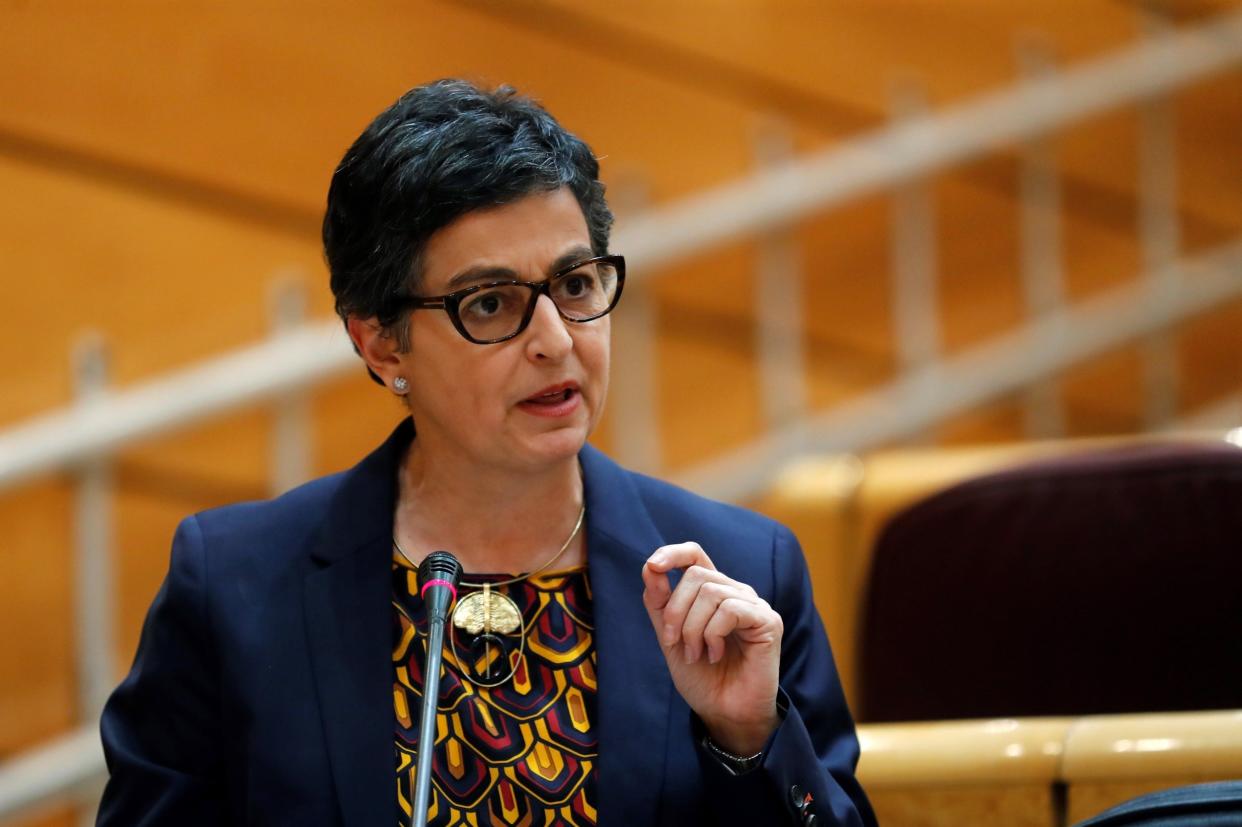Only slim chance tourists can visit Spain this year, suggests country’s foreign minister

Spain will not be able to open up to tourists until coronavirus is under control, says the country’s foreign minister, suggesting the chances British holidaymakers could return to the costas this year were slim.
Arancha Gonzalez Laya said European countries will have to come up with innovative ways for people to be able to board planes and buses in order for international travel to resume in some way in 2020.
“This year will be tough because we will not be able to welcome the tourists as we have in previous years because of health and safety, not only of tourists but also of Spaniards,” she said during an exclusive interview with The Independent.
“As soon as we have coronavirus under control we will be able to gradually open our country.”
After imposing one of the strictest lockdowns in the world in March, Spain has begun a phased easing of restrictions with regions lifting measures at different times – depending on infection levels and the number of hospital beds available. Travel between different parts of Spain is still banned.
Spain’s left-wing government on Friday extended its ban on all but essential travel to 15 June. At the same time it has ordered that anyone entering Spain must be subject to a 14-day quarantine to halt the spread of coronavirus.
Only Spanish nationals, foreigners with residency permits, transport workers, diplomats and airline staff are exempt from the travel ban by air, sea and land.
Everyone who arrives from abroad must stay in isolation for 14 days at a specified address. They can only go out to buy food, seek medical help or for emergencies.
Ms Gonzalez said, however, she was attracted to the proposal by the European Commission to open up travel between “green zones” across the continent where infection levels were lower.
The Balearic Islands and the Canaries, two of the most popular tourist destinations in Spain, have seen lower infection rates than parts of the mainland and have already eased strict lockdown rules.
This has already been seen on the continent, with Germany starting to lift border restrictions with Austria and France.
Baltic states Estonia, Latvia and Lithuania also reopened their shared borders on Friday, allowing citizens to move freely for business and pleasure in the EU’s first “travel bubble”.
“In principle I find it appealing to imagine that there could be a gradual opening between the parts of Europe which have been less affected by Covid-19, but what is more important is that we should invest in common protocols so that every person who travels to another country can do that in conditions of health and safety,” said Ms Gonzalez.
“We should simplify travel and also the business of travel. Let’s not forget there are millions of jobs in tourism.”
Spain is the second most popular tourist destination in the world after France and just over 18 million Britons spent their holidays there last year.
Tourism accounts for 12.3 per cent of Spain’s GDP, and 12.7 per cent of jobs, according to the country’s National Statistics Institute.
This has all but stopped after the country suffered one of the worst outbreaks in the world, with more 27,000 fatalities.
But the death rate has fallen over the past month, with 138 losing their lives on Friday compared with 217 on Thursday.
In order to start rebuilding, Spain – along with France and Italy – has pushed for the European Union to come to the rescue of southern states, which have suffered badly from the coronavirus outbreak. The idea being pushed is one of a modern day version of the Marshall Fund, which came into action to help the battered economies of European countries after the Second World War.
Ms Gonzalez called for the approval a fund of up to €1.5 trillion at a meeting of the European Council next month to help with the rapid reconstruction of the eurozone economies.
“We are saying that this fund should be implemented very fast to avoid what happened in the last crisis [when the response] was very protracted,” she said.
Ms Gonzalez, 50, who previously worked as an adviser to the EC trade commission, said that the European Union was the “love of her life”.
“I am a firm believer in the EU and at moments like this one, when the world is going through a big crisis, the response has to be for us to give a better political impulse, understanding the means by which we can better protect our citizens,” she said.
Read more
Spain: Foreign travellers must quarantine for two weeks upon arrival
Spain makes face masks compulsory on public transport
Adults in Spain allowed out to exercise for first time in seven weeks

